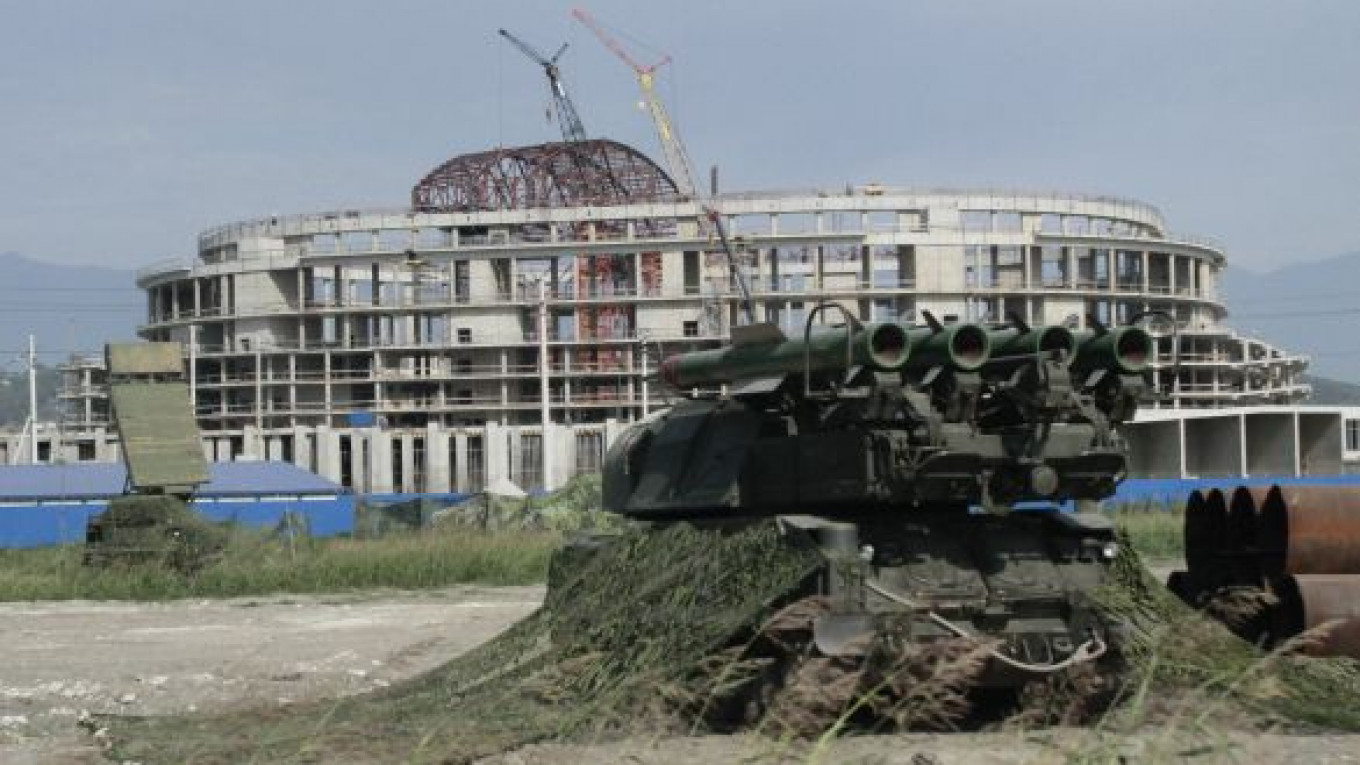FSB agents have foiled a terrorist plot on Sochi, host of the 2014 Winter Olympics, authorities said Thursday, accusing Chechen separatists and Georgia of jointly masterminding the plans.
Georgian authorities and security experts, however, called the accusations "paranoid" and "hard to believe."
The National Anti-Terrorist Committee said the Federal Security Service had discovered 10 caches of weapons and ammunition on May 4 to 5 in Georgia's breakaway republic of Abkhazia, which lies just kilometers from Sochi.
The arms seized included portable surface-to-air missiles, grenade launchers, flame throwers, grenades, rifles, explosives and maps, it said.
The terrorists were planning to smuggle the explosives and arms into Sochi "between 2012 and 2014 to use them during the preparations and during the games," it said, without elaborating on how it came to this conclusion.
It said Chechen rebel leader Doku Umarov, whom it alleges has close ties to Georgia's secret service, coordinated the delivery of the weapons and ammunition to Abkhazia and arranged caches for them.
Shota Khizanishvili, the chief of staff at Georgia's Interior Ministry, denied any links between Georgia and Umarov.
"I can only say that the National Anti-Terrorist Committee is staffed with people with peculiar fantasies," Khizanishvili said. "They're always trying to accuse Georgia and its secret services of everything in any situation and without any grounds. This is a sign of severe paranoia."
A regional security expert agreed that the accusations were "hard to believe."
The Georgian authorities “can hardly side with separatists and organize diversions," said Akhmet Yarlykapov of the Moscow-based Ethnology and Anthropology Institute.
The International Olympic Committee would not comment on the specific security case at Sochi but said in a statement that "security is a top priority for the IOC.”
"Security at the games is the responsibility of the local authorities, and we have no doubt that the Russians will be up to the task," the statement said.
A Message from The Moscow Times:
Dear readers,
We are facing unprecedented challenges. Russia's Prosecutor General's Office has designated The Moscow Times as an "undesirable" organization, criminalizing our work and putting our staff at risk of prosecution. This follows our earlier unjust labeling as a "foreign agent."
These actions are direct attempts to silence independent journalism in Russia. The authorities claim our work "discredits the decisions of the Russian leadership." We see things differently: we strive to provide accurate, unbiased reporting on Russia.
We, the journalists of The Moscow Times, refuse to be silenced. But to continue our work, we need your help.
Your support, no matter how small, makes a world of difference. If you can, please support us monthly starting from just $2. It's quick to set up, and every contribution makes a significant impact.
By supporting The Moscow Times, you're defending open, independent journalism in the face of repression. Thank you for standing with us.
Remind me later.






